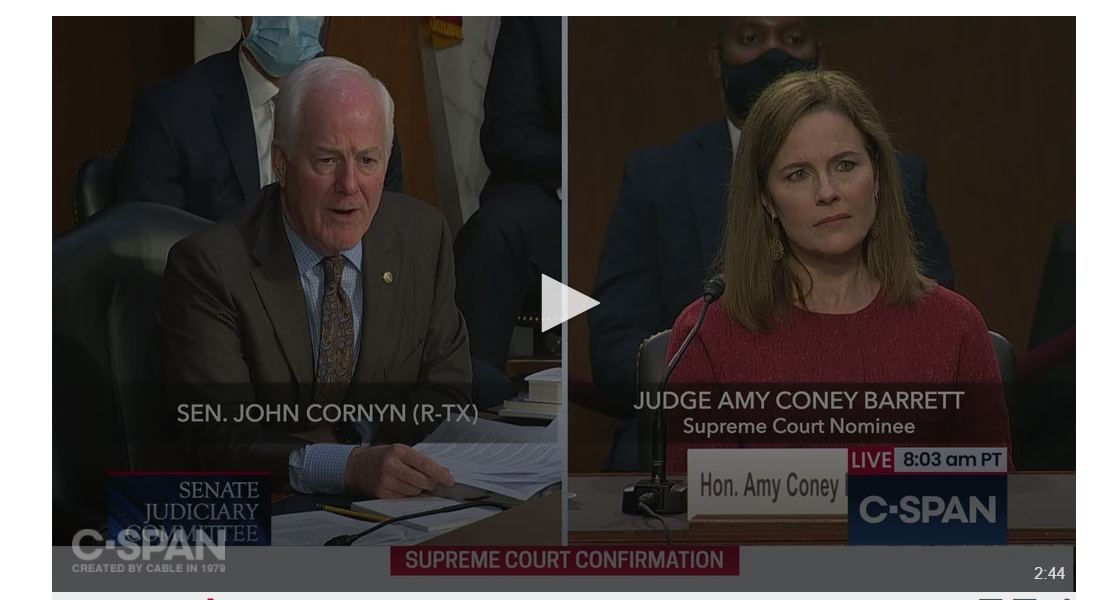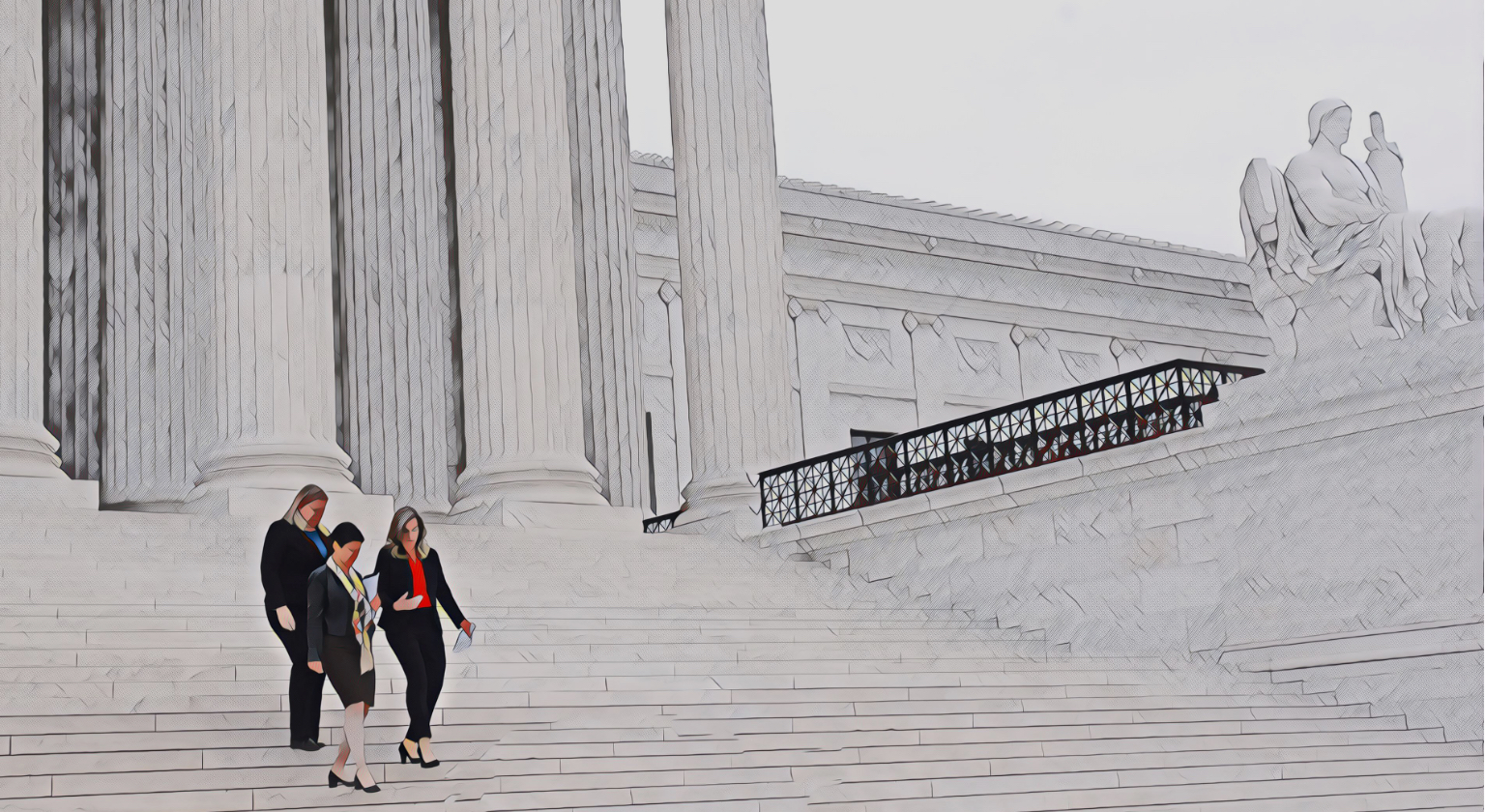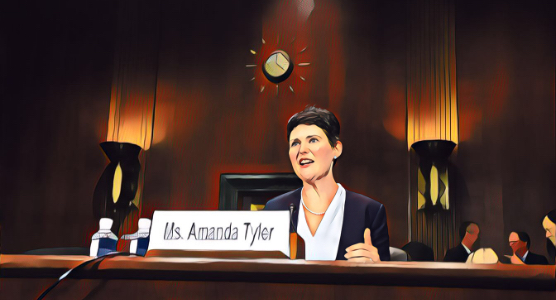In Day 2 of Amy Coney Barrett’s confirmation hearing, some religious liberty discussions, though little depth or insight
Day two of Judge Amy Coney Barrett’s Supreme Court confirmation hearing included a first round of questioning from many of the senators on the Senate Judiciary Committee. A few of them included religious liberty topics in their discussions with the judge. For a few reasons, those discussions yielded little substance.
First, to the dismay of C-SPAN junkies like me, it has become standard and understood that nominees will refuse to answer substantive legal questions, including refusing to say whether they agree or disagree with certain Supreme Court rulings. Judge Barrett proved no different in that regard. Other than promising to be a “textualist” in interpreting the law, she provided no insight into her legal views.
Second, as explained in the review of her record submitted to the committee by BJC, Judge Barrett has a limited judicial record in the area of religious liberty and the separation of church and state.
That being said, three senators made a point of having a discussion with Judge Barrett on religious liberty. I have posted clips below from those exchanges.
In the first, Sen. John Cornyn, R-Texas, elicits her view that balancing the Establishment Clause with the Free Exercise Clause is “notoriously difficult” and a question the Court has “struggled with for decades.” She confessed to the senator that she had no better answer now than when she first expressed that view to Justice Antonin Scalia in her interview with him to be a clerk.
In the second, Sen. Ted Cruz, R-Texas, asked Judge Barrett why religious liberty is important to Americans.
In the third clip, Judge Barrett discusses with Sen. Josh Hawley, R-Missouri, the difference between her personal moral views and her role as a judge. She stated that while she signed a letter expressing publicly her personal views on abortion as a private citizen several years ago, she would not consider that appropriate as a judge today. She also described her panel’s ruling in an employment case (Grussgott) applying the ministerial exception.
In its letter to the committee, BJC suggested a handful of excellent questions to ask. Hopefully one at least will come up later in the hearing. Those questions are below:
- Religious liberty is protected in three distinct ways in the U.S. Constitution: no religious test, no establishment and free exercise. We have recently seen a trend of Supreme Court decisions expanding Free Exercise doctrine with little regard for the Establishment Clause. As an originalist, do you think it is possible to expand Free Exercise jurisprudence without a faithful accounting of the Establishment Clause or vice versa?
- What is your understanding of the original intent of the Establishment Clause?
- Do you agree with Justice Clarence Thomas that the Establishment Clause was not incorporated against the states with the 14th Amendment?
- In describing your judicial philosophy, you have described originalists as needing to do the hard work of researching and discerning the original meaning of a text. If the Establishment Clause applies to the states, would an originalist be looking at the time of the Founding or of the 14th Amendment to discover the original meaning of the application of the Establishment Clause to the states?
- You have indicated that your judicial philosophy is the same as Justice Scalia’s. Do you agree with his dissents in cases such as Lee v. Weisman and Santa Fe v. Doe that would allow government-sponsored prayer in public schools? Do you believe, if given the opportunity, that those precedents should be revisited?







